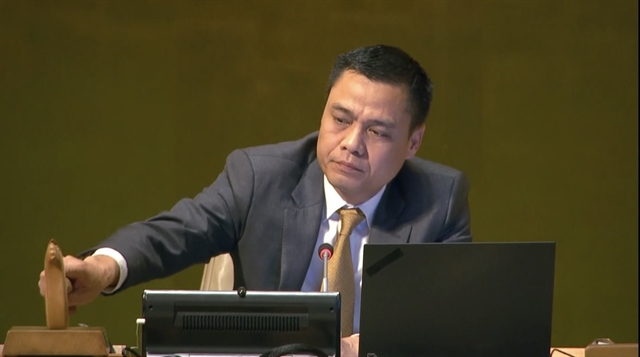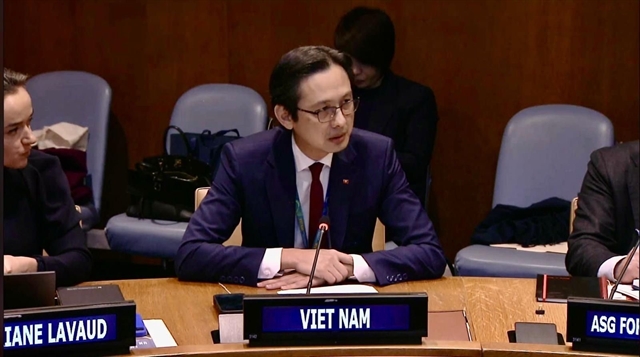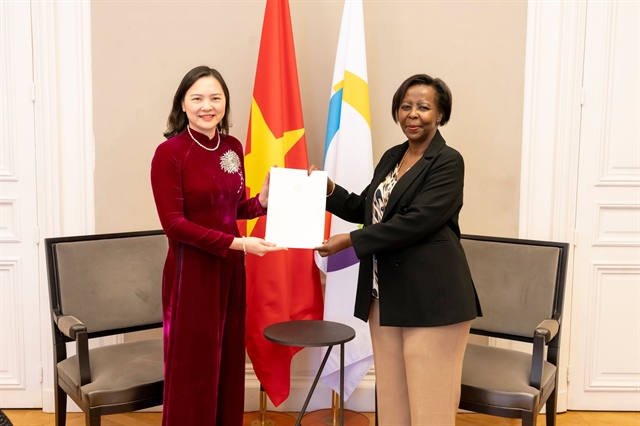 Politics & Law
Politics & Law


|
| Ambassador Đặng Hoàng Giang, Permanent Representative of Việt Nam to the United Nations, took presided over the meeting at the plenary session of the 77th United Nations General Assembly. — VNA/VNS Photo |
NEW YORK — Việt Nam and other countries shared their views on the important role played by the International Court of Justice (ICJ) in handling international disputes peacefully, at a plenary session of the 77th United Nations General Assembly on October 27 (US time).
The court has significantly contributed to promoting the observance of the UN Charter and international law, as well as sustainable development, peace, security and stability in the world, they said.
Việt Nam and some other countries, including Vanuatu, proposed the initiative of asking for the court’s consultancy regarding nations’ obligations on climate change.
Ambassador Đặng Hoàng Giang, permanent representative of Việt Nam to the UN, stressed that climate change has remained a challenge to the international community and threatens the lives of people in coastal countries and small island nations.
Many response measures have been taken, including commitments to net zero carbon emissions, yet climate change has still been developing complicatedly, he said.
The diplomat called for stronger actions in this regard, saying the responsibility and obligations of countries should be identified in accordance with relevant international conventions, including the UN Framework Convention on Climate Change, the Paris Agreement, and the UN Convention on the Law of the Sea.
The ICJ, also known as the World Court, is the main judicial organ of the UN. It was established in June 1945 by the Charter of the UN and began work in April 1946.
The court’s role is to settle, in accordance with international law, legal disputes submitted to it by states and to give advisory opinions on legal questions referred to it by authorised UN organs and specialised agencies. The court decides disputes between countries, based on the voluntary participation of the states concerned. If a state agrees to participate in a proceeding, it is obligated to comply with the court’s decision.
The court is composed of 15 judges elected to nine-year terms of office by the UN General Assembly and the Security Council. — VNS




